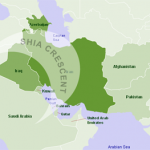By David Willman
Two serious technical flaws have been identified in the ground-launched anti-missile interceptors that the United States would rely on to defend against a nuclear attack by North Korea.
Pentagon officials were informed of the problems as recently as last summer but decided to postpone corrective action. They told federal auditors that acting immediately to fix the defects would interfere with the production of new interceptors and slow a planned expansion of the nation's homeland missile defense system, according to a new report by the Government Accountability Office.
As a result, all 33 interceptors now deployed at Vandenberg Air Force Base in Santa Barbara County and Ft. Greely, Alaska, have one of the defects. Ten of those interceptors — plus eight being prepared for delivery this year — have both.
Summing up the effect on missile-defense readiness, the GAO report said that "the fielded interceptors are susceptible to experiencing … failure modes," resulting in "an interceptor fleet that may not work as intended."
The flaws could disrupt sensitive on-board systems that are supposed to steer the interceptors into enemy missiles in space.
The GAO report, an annual assessment of missile defense programs prepared for congressional committees, describes the problems in terse, technical terms. Defense specialists interviewed by The Times provided more detail.
The interceptors form the heart of the Ground-based Midcourse Defense system, GMD for short. Four of the massive, three-stage rockets are stationed at Vandenberg and 29 at Ft. Greely.
They would rise out of underground silos in response to an attack. Atop each interceptor is a 5-foot-long "kill vehicle," designed to separate from its boost rocket in space, fly independently at a speed of 4 miles per second and crash into an enemy warhead — a feat that has been likened to hitting one bullet with another.
The GMD system was deployed in 2004 as part of the nation's response to Sept. 11, 2001, and a heightened fear of attack by terrorist groups or rogue states. It has cost taxpayers more than $40 billion so far and has been plagued by technical deficiencies.
One of the newly disclosed shortcomings centers on wiring harnesses embedded within the kill vehicles' dense labyrinth of electronics.
A supplier used an unsuitable soldering material to assemble harnesses in at least 10 interceptors deployed in 2009 and 2010 and still part of the fleet.
The same material was used in the eight interceptors that will be placed in silos this year, according to GAO analyst Cristina Chaplain, lead author of the report.
The soldering material is vulnerable to corrosion in the interceptors' underground silos, some of which have had damp conditions and mold. Corrosion "could have far-reaching effects" because the "defective wiring harnesses" supply power and data to the kill vehicle's on-board guidance system, said the GAO report, which is dated May 6.
When Boeing Co., prime contractor for the GMD system, informed government officials of the problem last summer, they did not insist upon repair or replacement of the defective harnesses, according to the report.
Instead, Missile Defense Agency officials "assessed the likelihood for the component's degradation in the operational environment as low and decided to accept the component as is," the report said.
The decision minimized delays in producing new interceptors, "but increased the risk for future reliability failures," the report said.
Chaplain told The Times that based on her staff's discussions with the Missile Defense Agency, officials there have "no timeline" for repairing the wiring harnesses.
The agency encountered a similar problem with wiring harnesses years earlier, and the supplier was instructed not to use the deficient soldering material. But "the corrective actions were not passed along to other suppliers," according to the GAO report.
L. David Montague, co-chairman of a National Academy of Sciences panel that reviewed operations of the Missile Defense Agency, said officials should promptly set a schedule for fixing the harnesses.
"The older they are with that kind of a flawed soldering, the more likely they are to fail," Montague, a former president of missile systems for Lockheed Corp., said in an interview.
The second newly disclosed defect involves a component called a divert thruster, a small motor intended to help maneuver the kill vehicles in flight. Each kill vehicle has four of them.
The GAO report refers to "performance issues" with the thrusters. It offers few details, and GAO auditors declined to elaborate, citing a fear of revealing classified information. They did say that the problem is different from an earlier concern that the thruster's heavy vibrations could throw off the kill vehicle's guidance system.
The report and interviews with defense specialists make clear that problems with the divert thruster have bedeviled the interceptor fleet for years. To address deficiencies in the original version, Pentagon contractors created a redesigned "alternate divert thruster."
The government planned to install the new version in many of the currently deployed interceptors over the next few years and to retrofit newly manufactured interceptors, according to the GAO report and interviews with its authors.
That plan was scrapped after the alternate thruster, in November 2013, failed a crucial ground test to determine whether it could withstand the stresses of flight, the report said. To stay on track for expanding the fleet, senior Pentagon officials decided to keep building interceptors with the original, deficient thruster.
The GAO report faulted the Missile Defense Agency, an arm of the Pentagon, for "omitting steps in the design process" of the alternate thruster in the rush to deploy more interceptors. The skipped steps would have involved a lengthier, more rigorous vetting of the new design, defense specialists said. The report said the omission contributed to the 2013 test failure.
All 33 interceptors now deployed have the original, defective thruster. The eight interceptors to be added to the fleet this year will contain the same component, GAO officials told The Times.
The missile agency currently "does not plan to fix" those thrusters, despite their "known performance issues," said the GAO report.
Contractors are continuing to work on the alternate thruster, hoping to correct whatever caused the ground-test failure. The first test flight using the alternate thruster is scheduled for late this year.
The GAO had recommended that the Pentagon postpone integrating the eight new interceptors into the fleet until after that test. Defense Department officials rebuffed the recommendation, the report said.
In a response included in the report, Assistant Secretary of Defense Katharina G. McFarland wrote that delaying deployment of the new interceptors "would unacceptably increase the risk" that the Pentagon would fall short of its goal of expanding the GMD system from 33 interceptors to 44 by the end of 2017.
Asked for comment on the report, a spokesman for the Missile Defense Agency, Richard Lehner, said in a statement that officials "have in place a comprehensive, disciplined program to improve and enhance" the GMD system "regarding the issues noted by the GAO."
"We will continue to work closely with our industry partners to ensure quality standards are not only met, but exceeded," the statement said.
Boeing declined to comment.
The GMD system is designed to repel a "limited" missile attack by a non-superpower adversary, such as North Korea. The nation's defense against a massive nuclear assault by Russia or China still relies on "mutually assured destruction," the Cold War notion that neither country would strike first for fear of a devastating counterattack.
GMD's roots go back to the Clinton administration, when concern began to mount over the international spread of missile technology and nuclear development programs. In 2002, President Bush ordered "an initial set of missile defense capabilities" to be put in place within two years to protect the U.S.
To accelerate deployment, then-Defense Secretary Donald H. Rumsfeld exempted the missile agency from the Pentagon's standard procurement rules and testing standards.
Engineers trace the system's difficulties to the breakneck pace at which components were produced and fielded. In precisely scripted flight tests above the Pacific, interceptors have failed to hit mock-enemy warheads about half the time.
As a result, the missile agency projects that four or five interceptors would have to be fired at any single enemy warhead, according to current and former government officials. Under this scenario, a volley of 10 enemy missiles could exhaust the entire U.S. inventory of interceptors.
The Obama administration, after resisting calls for a larger system, pledged two years ago to increase the number of interceptors to 44. Both Republicans and Democrats in Congress have pushed for further expansion. The House this month passed a bill authorizing $30 million to plan and design a site for interceptors on the East Coast. The White House called the move "premature."







